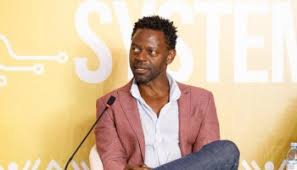Global leaders, policymakers, financiers, and changemakers recently gathered in Kampala for the first-ever Uganda Development Finance Summit. Under the theme “Transforming Africa Through National Development Finance Architecture,” this two-day event aimed to explore new ways to reshape Africa’s development path through stronger financial institutions.
President Yoweri Museveni opened the summit and stressed the need for a robust national development bank to unify and strengthen Africa’s fragmented financial markets. He highlighted that businesses require low costs for inputs like electricity, money, and transport, along with strong markets for their products—needs that an integrated Africa could fulfill.
Museveni criticized the reliance on private sector and foreign investment alone, saying it has limited Africa’s progress because local savings are often low or wasted. He pointed to Uganda Development Bank (UDB) as a vital government institution that can provide patient, long-term capital without focusing solely on profit. The President suggested increasing UDB’s funding and lowering its interest rate to 10 percent to better support local businesses.
He identified four key sectors with high potential for driving Africa’s growth: commercial agriculture, manufacturing, services (like tourism and hospitality), and information and communication technology (ICT). These sectors, he said, are the foundation for wealth creation and economic transformation.
Dr. Patricia Ojangole, Managing Director of UDB, spoke about the importance of building a strong national development finance system that blends public and private efforts, encourages innovation, and invests in local leadership. She said National Development Banks (NDBs) and Development Finance Institutions (DFIs) like UDB must work as catalysts to attract investors and scale impactful projects across Africa.
The summit also featured input from Arshad Rab, CEO of the European Organisation for Sustainable Development, who urged Africa to design financing systems suited to its unique needs rather than copying western models.
He warned that high interest rates of 20-30 percent across the continent block entrepreneurial growth, job creation, and economic stability.
According to the 2024 Africa Sustainable Development Report, Africa needs $1.3 trillion annually to meet the United Nations’ Sustainable Development Goals by 2030.
This includes $68 to $108 billion per year just for infrastructure investments. However, official development aid is declining, making it even more urgent for African countries to develop self-reliant and innovative financing structures.
The Uganda Development Finance Summit provided a forum to discuss important topics such as industrial policy, green growth, technological change, and how Africa’s young population can be a powerful economic asset. The event brought together government officials, finance experts, business leaders, and development partners to chart a bold new course for Africa’s sustainable growth.
UDB is Uganda’s national development finance institution focused on accelerating socio-economic progress by supporting projects with high socio-economic impact.
These include creating jobs, increasing production, and improving tax revenues and foreign exchange earnings. UDB’s priority sectors align with Uganda’s National Development Plan III and Vision 2040, focusing particularly on agriculture, industry (manufacturing, agro-industry, extractives), and services like health, education, tourism, and technology.
This summit marks a critical step toward empowering Africa to forge its own financial future through stronger institutions, innovation, and collaboration.



